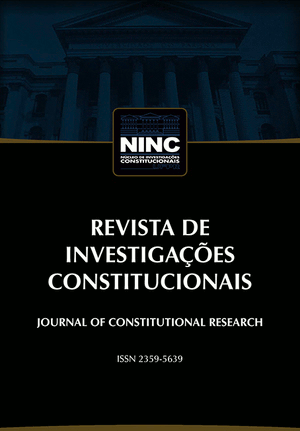Abstract
This paper presents a synthesis of critical analyses about the lack of transparency and the problem of biases in the use of artificial intelligence (AI) systems as support or for effective judicial decision making from the Brazilian context, based on researches coordinated by the authors. From the methodological point of view, bibliographic, documentary and empirical researches were developed in the investigations. Analytical-interpretative studies of the materials gathered were made in order to ground the considerations. In the approach, a brief description of the state of the art regarding the use of AI by the national judiciary was elaborated, followed by analyzes on the opacity of algorithms and cognitive biases, according to topics related to the structural incompatibility between data processing by AI and the application of Law; the inability of the AI to make value judgments; the accentuation of cognitive biases by AI; and lack of transparency in relation to the algorithms and data used by the AI. At the end, proposals are presented to face the problems related to the use of AI for judicial decision making.
Keywords:
use; artificial intelligence; transparency; bias; judicial decision
